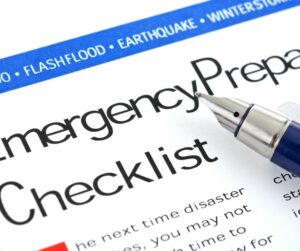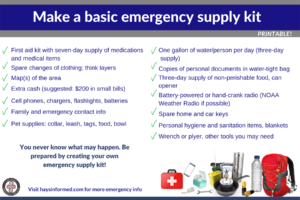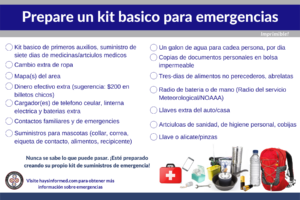Brayden Watson
 Hays County Local Health Department
Hays County Local Health Department
Emergency Preparedness Coordinator
Phone: 512.393.7721
Email: brayden.watson@co.hays.tx.us
The Hays County Local Health Department’s Emergency Preparedness Program coordinates the countywide public health response to large-scale emergencies and disasters – from naturally occurring ones such as a flu pandemic to those caused accidentally, such as a chemical spill, or intentionally by terrorist attack. The program is responsible for disaster planning, response, recovery and training as it relates to public health.
Planning for large-scale disasters efficiently means that a large number of volunteers will be necessary to provide medical, nursing, security and clerical functions, among other tasks. If you are interested in learning more about being a volunteer during an emergency situation, please visit hayscountycert.com or email laurie.taylor@co.hays.tx.us.
During emergencies, tune to your local cable or satellite TV provider’s emergency information station for important announcements. You can also visit HaysInformed.com or the Hays County Official Facebook page.
Recommended Links
- HaysInformed
- Hays County Community Emergency Response Team (CERT)
- Register your address for emergency notifications at WarnCentralTexas
- Hays County Office of Emergency Services
- Hays County Emergency Preparedness Fair
Additional Links
- Texas Department of State Health Services
- Centers for Disease Control and Prevention (CDC)
- Texas Division of Emergency Management
- FEMA (Federal Emergency Management Agency)
- Department of Homeland Security
- American Red Cross
- National Weather Service
- City of San Marcos Office of Emergency Management
- Zika
Preparedness Kits
Print this build a kit card and keep handy for easy reference; click images to enlarge to PDF)
Build a Kit
- Prepare a family disaster/survival kit
- Maintain a list of emergency telephone numbers
- Keep a number of a non-local family member you can contact that can notify other family members of your status (It helps to keep telephone calls to a minimum in an emergency)
- Show family members how to turn off water, gas, and electricity in the case of an emergency
- Teach family members how to use your home fire extinguisher
- Three-day supply of drinking water
- Canned food
- Manual can opener
- One change of clothing and footwear per person
- One blanket or sleeping bag per person
- First aid kit that includes critical family member prescription medications
- Flashlight with extra batteries
- Battery operated radio
- Special items for infant, elderly, or disabled family members
- Sanitation supplies
- Cash or traveler’s checks
If Disaster Strikes:
- Make sure you have adequate clean water
- Check on neighbors, especially the elderly or disabled
- Confine or secure your pets, remember that some shelters do not accept pets
- Stay away from downed power lines or other obvious hazards


